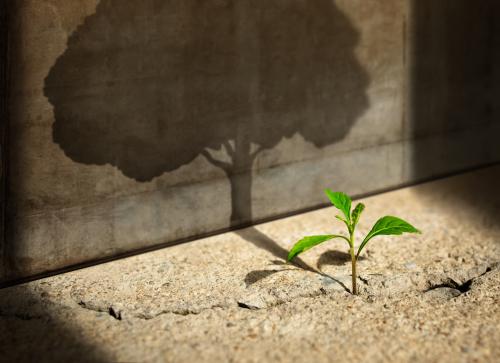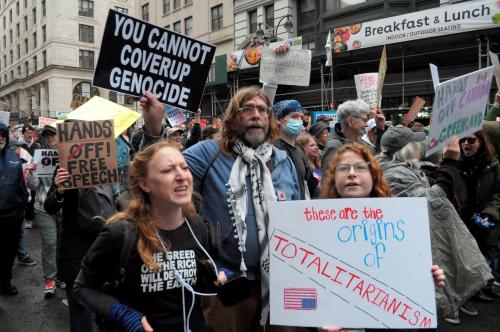Last week in Mali, Islamic rebel fighters went on an unanticipated offensive, expanding on the vast swaths of land they control in the country’s north. They began making inroads into the southern half of the country, taking the town of Diabaly, which is roughly 200 miles from the country’s capital, Bamako. Almost immediately, French troops were deployed to the country, and French aerial attacks began to pummel rebel fighters.
The objectives of the French incursion in the country are still not totally clear. If the French mean to take back all the territory that the rebels have gained, current efforts are probably insufficient. It is more likely that the French efforts are simply meant to be a stop-gap measure, to halt further losses and retake recently lost ground. Even with this more modest aim, the French will most likely have to make much larger and more long-term military commitments in the country. Recent statements by French President Francois Hollande and France’s pledge to dramatically increase the numbers of its boots on the ground attest to the likelihood of greater French involvement. When this intervention will come to a close is difficult to foresee.
It is similarly difficult to parse out what France’s broader interests in Mali are exactly. The intervention was partly billed in France as a humanitarian mission: Its purpose is to assist the country in resisting the imposition of the harsh form of Sharia law that the northern region has witnessed in recent months. Perhaps additionally, the intervention was to protect the thousands of French nationals inside the country. Expatriates in the town of Segou have been ordered to evacuate; although, at present, it appears that those in Bamako have not been give such orders.
The intervention was also touted in France as a security operation. An assortment of jihadist fighters call Mali home (and more have immigrated to the country in the past year). Al-Qaida in the Islamic Maghreb (AQIM), one of the main groups in the loose alliance of Islamic rebels now sweeping the country, was behind the Benghazi attack of Chris Stevens, the U.S. ambassador to Libya. On Wednesday, AQIM seized a gas facility in eastern Algeria where it has held dozens hostage and has demanded an end to the French military intervention in Mali. Clearly, France is taking these incidents seriously. Back in November, the French defense minister said “In Mali, it is our own security that is at stake … because if we don’t move a terrorist entity will take shape which could hit … France … [or] Europe.”
However, the degree to which French security interests are affected by the recent rebel advances is unclear. It would be rather simplistic and naïve to accept the position that France’s intervention is motivated by a desire to do good for the best interests of the Malians. Less discussed in the media’s attention on the topic have been the economic interests France has in the country. According to Katrin Sold, a member of the German Council on Foreign Relations, “France has interests in securing resources … particularly oil and uranium, which the French energy company Areva has been extracting for decades in neighboring Niger.” It is very likely that France is largely driven by economic interests and much less by preventing a humanitarian crisis. After all, there have been many worse atrocities in other former French African colonies, and such a heavy-handed response has not been forthcoming in those scenarios. Protecting the oil and uranium resources must have been pivotal to the decision to intervene in this case.
Admittedly, the crisis in Mali calls for some external intervention, and what is clear is that the Malian forces are ill-equipped to counter the threats that the rebels are posing. The country has not regained its footing after a military coup in Bamako last year. In fact, even previous to the coup, the country’s capacity to fight the rebels in the north was severely limited. It is perhaps unsurprising, therefore, that Malian President Dioncounde Traoré requested French assistance. France, for its part, has stressed the need to “Africanize” the fight in Mali, but so far, this has been difficult to do. A number of months ago, the Economic Community of West African States (ECOWAS) agreed to deploy a military force of more than 3,000 soldiers to the country, but the contingent was not forthcoming. The delay was caused by wrangling over logistical questions, such as how many troops each countries would send and who would pay for the costs of deployment. In the past week, however, support measures have been stepped up, and at present, Canadian and British forces are in the process of transporting soldiers from Nigeria, Senegal, Benin, Niger, Burkina Faso and Togo to the country. Nonetheless, some commentators remain doubtful: “A credible West African fighting force able to seize and hold territory in northern Mali can’t be assembled overnight or in a matter of weeks,” one security analyst, working for the global intelligence company Stratfor, has been quoted as saying.
Thus, while many Africans see the French intervention as yet another sign of the continued domination by former colonial powers, this “re-colonization” is in many respects a result of the failure of Africans to govern themselves and establish credible structures to deal with situations like the one in Mali. Unfortunately, such interventions by former colonial masters tend to create even deeper divisions in the countries concerned. Thus, while the intervention may result in short-run cessation of atrocities, in the long run, the country’s capacity to establish institutions that can adequately harmonize claims by different groups will be weakened.
What also seems to be lost in the discussions about the crisis in Mali, and indeed in many other African countries, is an understanding of the root causes of the crisis and the fact that, ultimately, no amount of fighting will resolve the conflict. Political solutions will be necessary in order to usher in relative peace and stability. This will invariably require addressing the economic grievances of those in the north, establishing a legitimate government in Bamako, and ensuring that elections in the country (which are planned to be held in April) are free and fair. With the country divided in two, and with violence a part of daily life, these tasks will not be easy.
The Brookings Institution is committed to quality, independence, and impact.
We are supported by a diverse array of funders. In line with our values and policies, each Brookings publication represents the sole views of its author(s).



Commentary
The Second Coming of France in Mali and the Challenges of Continental Leadership in Africa
January 18, 2013